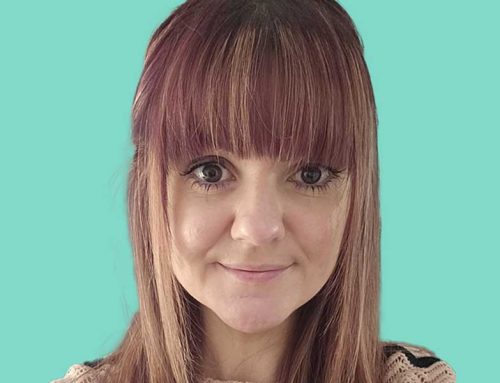In the second of this two-part series, Psychiatry UK consultant Dr Alexandros Chatziagorakis explores the elements to be found in a good self-care toolbox. In the first part we looked at the fundamental role of sleep. In this part Dr Chatz looks at how nutrition, exercise and a positive outlook support a healthy, happy lifestyle.
Nutrition
Our diet, nutrition and eating habits can affect both our physical and our mental health. At the end of the day, the distinction between mind (mental health) and body (physical health) is a rather philosophical one, since the brain is part of the human body the same way that the heart or the gut are.
Nutrition is an exciting field where new information constantly comes to light; however, this has resulted in a plethora of often confusing and contradictory information coming from various sources: scientific research, as well as online articles, blogs, social media and books.
In the United Kingdom, a national food guide, the ‘Balance of Good Health’ was introduced in 1994. Thirteen years later, it was revised and renamed to the ‘Eatwell Plate’. This was a visual representation based on 5 food groups and showed the proportion that each food group should contribute to a healthy and balanced diet. The plate was supported by further advice, the ‘8 tips for healthy eating’. Informed by evidence-based nutrition advice, it was revised and renamed once again in 2016. It is now called the ‘Eatwell Guide’.
The main dietary messages of the ‘Eatwell Guide’:
- Eat at least 5 portions of a variety of fruit and vegetables every day.
- Base meals on potatoes, bread, rice, pasta or other starchy carbohydrates, but choose wholegrain versions where possible.
- Have some dairy or dairy alternatives (i.e. soya drinks), but choose lower fat and lower sugar options.
- Eat some beans, pulses, fish, eggs, meat and other proteins (including 2 portions of fish every week, one of which should be oily).
- Choose unsaturated oils and spreads and eat in small amounts. • Drink 6-8 cups/glasses of water a day.
- If consuming foods and drinks high in fat, salt or sugar have these less often and in small amounts.
Further advice, in addition to the above: Drink alcohol in moderation. In the UK, guidelines recommend not to drink more than 14 units of alcohol a week. Higher consumption of alcohol can exacerbate both the physical and the mental health, and may render other interventions ineffective. Recreational drugs can also have a negative effect on mental health (so avoid them completely). Exercise/keep physically active.
Physical activity/exercise
Like a balanced diet, exercise and physical activity can be beneficial both to our physical and mental health, including our mood and cognition.
Research has shown that exercise lowers the risk of dementia and depression, by releasing endorphins. Exercise can also foster our sense of self-worth and increase our self-confidence not only by making us feel better about our appearance, but also by helping us gain a sense of achievement and mastery.
In the UK, the NHS recommends that we do at least 150 minutes of moderate intensity activity a week or 75 minutes of vigorous intensity activity a week.
I personally recommend yoga, as it is more than physical exercise. Having a meditative and spiritual core, as well as combining physical exercise with an awareness of breath, yoga can also help you relax and unwind. I know that yoga classes can be quite expensive, but you don’t always have to join one to practise yoga. A colleague of mine recently recommended an app called ‘Down Dog’, which allows you to practise yoga at home and for free. You can also find guided yoga routines on YouTube.
Positive psychology/gratitude
A large number of published studies confirm the strong association between mental health on the one hand, and positive psychology exercises (but also mindfulness and meditation) on the other. These studies also explain the reason for this. Neuroplasticity, or brain plasticity, refers to the ability of the brain to change (both its structure and its function) throughout one’s life. This is commonly called rewiring and involves creating and strengthening brain pathways. Neuroscience research shows that positive psychology exercises, including reflection and gratitude exercises, are effective ways to improve one’s mental health for this very reason; they contribute to the rewiring of the brain. The same is true of mindfulness and meditation.
Positive thinking, optimism and gratitude have been associated with both mental and physical health benefits, such as:
- Better coping skills during hardships and times of stress
- Lower rates of depression • Lower levels of distress
- Better mental and physical wellbeing
- Greater resistance to the common cold
- Better cardiovascular health and reduced risk of death from cardiovascular disease
- Increased life span
One simple yet effective strategy is to reflect on our every day, identify and write down three positive things about that day, or three things we are grateful about. This can help us create a more positive mindset; it can also help us focus on the positive aspects of our everyday lives, rather than dwell on our shortcomings.
Structure/routines & activities
Routines, structure and activities are important because they provide a sense of security and familiarity, as well as order, direction and meaning. Activities help provide a sense of achievement (purpose) as well as enjoyment (pleasure).
A regular sleep pattern and regular meal times, as well as occupational and/or educational activities provide an excellent structure (or framework) for most people. Some may not have a full-time job or may not be in full-time education. Yet, caring for others (children or the elderly) or volunteering are often equivalent to a paid job. These are all essential ingredients to a meaningful and purposeful life. Purposeful activities (such as work, education, caring and volunteering) can also foster our sense of self-worth and increase our self-esteem by helping us gain a sense of achievement and mastery.
Unfortunately, purposeful activities are not always pleasurable. Most of us work or study because we have to, rather than want to do it. But, to have a well-balanced life, we also need pleasurable activities (or hobbies) to suit our personal interests. The list is endless. For some, activities such as exercise or reading may be extremely pleasurable. For others, cooking or baking may be considered pleasurable activities (rather than something they just have to do). The same applies to learning a foreign language or a musical instrument; children may not consider this a hobby, but a lot of adults find enjoyment in learning new skills. Gardening, arts and crafts are other activities that many of us may consider enjoyable.







Leave A Comment